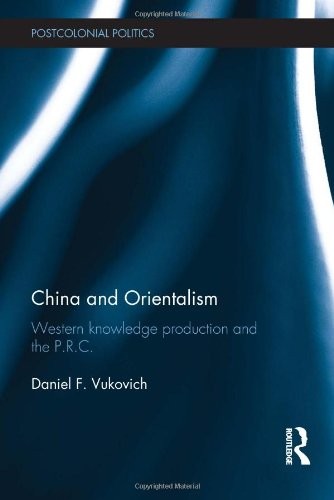possm reviewed China and Orientalism by Daniel F. Vukovich (Postcolonial politics -- 5)
Thought provoking
4 stars
Had a hard time for the first few chapters because I was on my guard on whether or not I was reading Mao apologia - but the more I got into the book, the more I understood the author's points and was able to follow his way of thinking. From then on, this felt like a necessary corrective approach to the field of sinology. The book is written for academics and that's fine. It's still fairly engaging, with exceptions. The last chapter is exceptionally hard to understand, it's too heavy with Marxist theory for my tiny brain. The chapter about the death count of the Great Leap Forward started off like something I would hate (it just feels like the "holocaust denier" kind of argument about numbers not adding up), but somehow managed to make an excellent point about the disregard for Chinese lives that Sinologists show in handling the …
Had a hard time for the first few chapters because I was on my guard on whether or not I was reading Mao apologia - but the more I got into the book, the more I understood the author's points and was able to follow his way of thinking. From then on, this felt like a necessary corrective approach to the field of sinology. The book is written for academics and that's fine. It's still fairly engaging, with exceptions. The last chapter is exceptionally hard to understand, it's too heavy with Marxist theory for my tiny brain. The chapter about the death count of the Great Leap Forward started off like something I would hate (it just feels like the "holocaust denier" kind of argument about numbers not adding up), but somehow managed to make an excellent point about the disregard for Chinese lives that Sinologists show in handling the history of the GLF. This book confronted me with my own unconscious racisms and essentialisms. It made me aware of some rotten things in sinology. I hope to reread the last chapter once I have a more solid grasp on Marxist concepts. I guess maybe I should read Said's Orientalism too, since it is the framework that this book is based on. Maybe someday. I also think it's interesting that the author isn't a Sinologist but actually considers his external perspective to be an epistemological strength. After all the book is mostly about epistemology (it does have "knowledge production" in the subtitle) and I find that very interesting.

